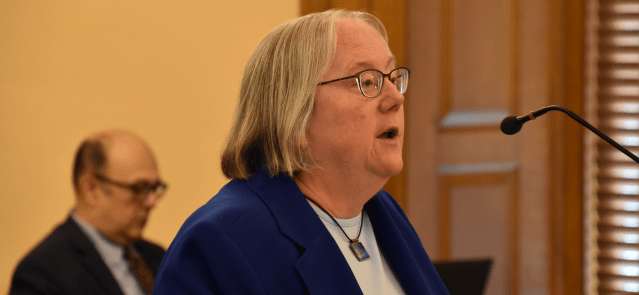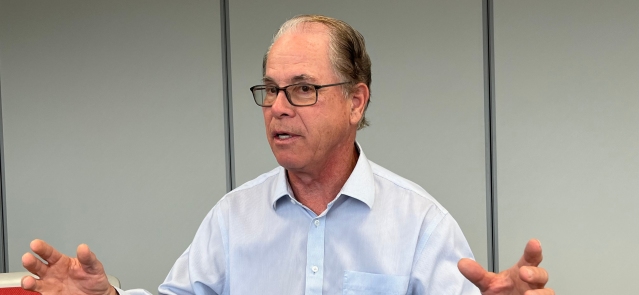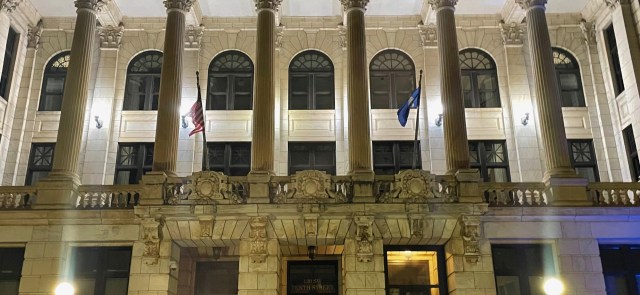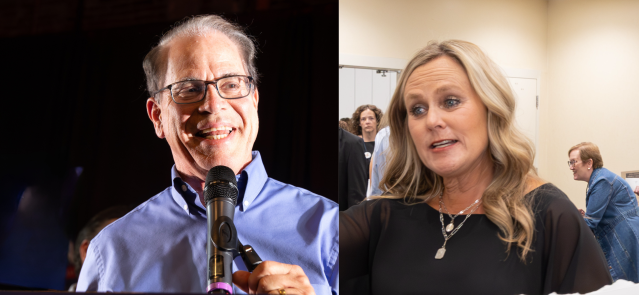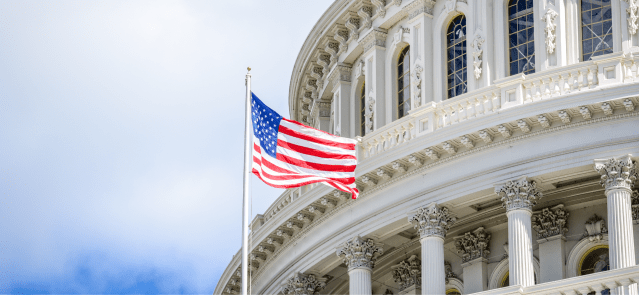Republican gubernatorial candidate Mike Braun is backing the removal of all income limits for the state’s private school voucher program as part of his education platform.
Braun’s proposals released Tuesday call for targeting pay raises for teachers in “high-need content areas” without specifying any salary goals such as the $60,000 minimum pay level that Democratic candidate Jennifer McCormick wants implemented.
Braun also proposed creating a new Office of School Safety and reiterated support for laws adopted in recent years requiring schools to notify parents if their child wants to use a different name or pronouns and banning transgender students from competing in girls school sports.
Here are some key parts of Braun’s proposals:
Universal private school vouchers
The Braun plan would lift the income limits on the state’s school voucher program that have been greatly eased by Republican legislators in recent years.
Lawmakers in 2023 approved a voucher expansion that raised the income limit for a family of four from $154,000 to $220,000. That step and broader eligibility provisions led to a 32% jump to nearly 71,000 students receiving voucher money this past school year and the program’s cost growing to $439 million — up from $311 million a year earlier, according to a state Department of Education report.
“Reform the Choice Scholarship Program to allow every Hoosier family, regardless of income, race, ZIP code, or other factors, to choose the school that best fits their children’s educational needs,” said a policy paper from the Braun-aligned group Hoosiers for Opportunity, Prosperity and Enterprise that his campaign distributed.
Democrats have opposed the voucher expansions, arguing that the program drains money away from traditional public schools. Braun’s plan, however, embraces opening the program to any student regardless of family income as backed by Republican House Speaker Todd Huston.
Uncertainty about the future costs of the voucher program has drawn the attention of the national credit rating agencies that review the state government’s fiscal condition.
“The school choice program functions as an open-ended entitlement with the potential for higher costs if enrollment materially exceeds the state’s expectations,” a 2023 report from Fitch Ratings said.
McCormick’s campaign called Braun’s proposals “ill-informed.”
“After 20 years of one-party rule, I’m surprised Mike Braun has offered an education plan that is as bad as it is for Hoosier children,” McCormick campaign manager Kelly Wittman said in an email to State Affairs.
McCormick, a former Republican state school superintendent, has called for schools accepting vouchers to be held to the same academic and financial standards as traditional public schools.
Boosting teacher pay, number of new teachers
Braun’s platform called for improving teacher pay without giving a salary target and expanding programs to transition professionals with college degrees into teaching jobs to help address educator shortages.
Braun’s plan indicated that not all teachers would see the same attention to their salaries.
“Increase Indiana’s public teacher base salary, ensure teachers in high-need content areas have higher pay, and institute statewide student outcomes-focused performance pay to reward high-performing teachers,” the policy paper released by his campaign said.
McCormick, meanwhile, wants the state to set a $60,000 minimum teacher salary. The statewide average during the 2022-23 school year was about $58,500, according to a state report.
“It’s time that we make sure that we’re treating teachers the way we need them to be treated — like the professionals they are,” McCormick said.
The pro-Braun group’s policy paper said the state should “identify content areas and school districts with teacher shortages, and direct the State’s resources toward recruiting these high-need teachers.”
School safety and transgender issues
Braun said he wanted to establish an Indiana Office of School Safety and increase funding for security grants to school districts.
The new safety office would “streamline and enhance existing authorities at the Department of Education, Department of Homeland Security, and Indiana State Police,” the policy paper said.
“Indiana’s school safety authorities are fragmented across different agencies,” the paper said. “As modern threats continue to grow in complexity, the State must ensure that local communities and schools are supported so that no aspect of school safety falls through the cracks.”
Braun’s platform included support for Republican-backed laws adopted over the past two years requiring parental notifications about students wanting to use a different name or pronouns and banning transgender students from competing in girls school sports.
“The State should continue to ensure that biological males will not compete against our girls on the court, in the pool, or invade the privacy of their locker rooms,” the policy paper said.
What Braun and teachers union say about platform
Braun’s statement releasing his platform said “parents are the primary stakeholders in their kids’ education.”
“My future-focused education plan puts Hoosier kids and parents first, raises teacher pay and incentive, ensures that our kids are safe, and puts Indiana schools on the path to become the best in the nation,” Braun said.
The Indiana State Teachers Association, the state’s largest teachers union, has endorsed McCormick and said that under her plans “educators will have a voice in their working conditions and students’ learning conditions, adequate school funding, safe, inclusive learning environments, and strong student mental health support.”
“Hoosier educators deserve competitive compensation, respect and the ability to have a voice in their profession,” union President Keith Gambill said in a statement.
Tom Davies is a Statehouse reporter for State Affairs Pro Indiana. Reach him at [email protected] or on X at @TomDaviesIND.

